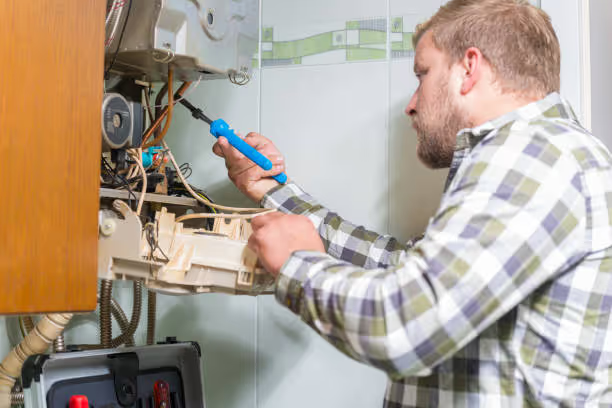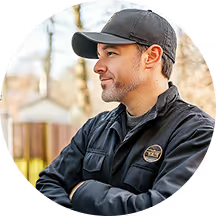Heating Service in Riverhead, NY
Keeping your home warm and safe through Long Island winters depends on a heating system that is reliable, efficient, and properly maintained. Heating Service in Riverhead, NY covers repair, maintenance, tune‑ups, installation, and replacement for furnaces, boilers, heat pumps, and ductless systems—tailored to the local climate, salt‑air exposure, and the mix of older and newer construction common across Suffolk County.

Why timely heating service matters in Riverhead
Riverhead homeowners face cold, damp winters, occasional coastal salt spray, and homes that often have older ductwork or less insulation. These conditions make heating systems work harder and increase the risk of corrosion, reduced efficiency, and safety issues like carbon monoxide leaks. Prompt repair and seasonal maintenance not only restore comfort but also:
- Improve fuel and electrical efficiency to lower monthly costs
- Reduce the chance of midseason breakdowns during cold snaps
- Extend equipment lifespan and protect manufacturer warranties
- Ensure safe combustion and lower carbon monoxide risk in gas or oil systems
Common heating problems in Riverhead homes
Residents typically encounter a predictable set of issues that professional heating service addresses:
- Uneven heating or cold rooms from duct leaks, blocked vents, or imbalance
- Short cycling, poor ignition, or pilot outages in older furnaces or boilers
- Low heat output due to failing burners, worn heat exchangers, or clogged filters
- Corrosion or refrigerant loss on outdoor heat pump units from coastal air
- Noisy operation from failing blower motors, bearings, or circulator pumps
- Frequent thermostat communication problems or improper programming
- Boiler pressure drops or kettling caused by scale, trapped air, or failing components
Types of heating services offered
- Diagnostic repairs for furnaces (gas and electric), boilers (hot water and steam), and heat pumps (air‑source, mini‑split)
- Seasonal maintenance and tune‑ups (fall pre‑season inspections, filter changes, safety checks)
- Full system installation and replacement, including high‑efficiency options and zoning
- Heat pump conversions and hybrid system installations for fuel‑switching or increased efficiency
- Ductwork inspection, sealing, balancing, and repair
- Smart thermostat setup and zoning integration
- Commercial heating service for retail, office, and light industrial systems
What a professional diagnostic and repair process looks like
A professional heating visit typically follows a clear inspection and diagnostic sequence to isolate the problem and recommend the right solution:
- Visual inspection of unit, combustion area, venting, and outdoor components for corrosion or damage
- Safety checks: carbon monoxide testing, gas leak testing, flue draft and pressure verification
- Electrical and control diagnostics: thermostat communication, ignition sequence, and control boards
- Mechanical inspection: blower motor, belts, bearings, circulator pumps, and heat exchanger condition
- Refrigerant and heat‑pump specific checks: charge level, compressor health, reversing valve, and defrost cycle
- Ductwork and airflow measurement to identify leaks, blockages, and balance issues
- Clear explanation of findings, repair options, parts required, and estimated timelines
Repairs use OEM or equivalent quality parts; common on‑site parts include filters, igniters, flame sensors, pressure switches, capacitors, and motors. For major components like compressors or heat exchangers, replacement options are evaluated alongside repair depending on age and cost-effectiveness.
Maintenance and tune‑up checklist
A seasonally performed tune‑up addresses efficiency and safety while preventing emergency breakdowns:
- Replace or clean air filters and inspect filter housings
- Clean burners, heat exchangers, and combustion chambers
- Check and adjust gas pressure and burner performance for proper combustion
- Lubricate motors and moving parts where applicable
- Verify thermostat calibration and program settings
- Inspect and test safety controls, limit switches, and pressure relief valves
- Clean condensate drains and pans, and check condensate pumps on high‑efficiency units
- Report on system condition and recommended next steps
Installation and replacement guidance
When a system is beyond economical repair or you want to upgrade for efficiency, the replacement process focuses on right‑sizing and future operating costs:
- Load calculation to determine proper BTU or tonnage for your Riverhead home, accounting for insulation, windows, and orientation
- Comparison of AFUE ratings for furnaces/boilers and HSPF/SEER values for heat pumps to estimate operating savings
- Considering hybrid systems (gas furnace paired with heat pump) to balance comfort, efficiency, and fuel cost volatility
- Ductwork assessment for leakage and insulation upgrades to maximize new system performance
- Permitting and code compliance for local building requirements
Brand and parts support
Major brands commonly serviced in the region include Rheem, Bosch, Daikin, Goodman, and Amana, along with a wide range of heat‑pump and boiler manufacturers. Professional service ensures:
- Use of manufacturer‑approved replacement parts to preserve warranties
- Access to OEM technical documentation and service bulletins
- Options for extended parts warranties or manufacturer registration when installing new equipment
Response times, emergency service, and service windows
Heating service needs vary from routine maintenance to emergency breakdowns. Typical service models in the area provide:
- Same‑day or next‑day appointments for non‑emergency diagnostics and repairs
- 24‑hour emergency response capability for no‑heat situations in severe cold
- Priority scheduling for heating system failures that present safety risks (gas smell, CO alarm activation, no heat in freezing conditions)
- Clear estimates for repair timeframes and parts lead times when components must be ordered
Residential vs. commercial heating service
Commercial systems require different considerations than residential properties:
- Larger equipment, higher capacity boilers, rooftop units, and commercial controls
- More stringent maintenance schedules to meet business continuity needs
- Customized service agreements tailored to operating hours and planned downtime
- Documentation for code compliance and insurance requirements
Typical steps for getting an estimate or scheduling professional heating service
A typical process for planning work on your heating system includes:
- Provide general system information (type, age, symptoms) for an initial assessment
- Arrange an on‑site inspection so a technician can perform diagnostic testing and measurements
- Receive a written estimate outlining recommended repairs, replacement options, parts, and expected timelines
- Review financing, rebate, or efficiency upgrade options if applicable
- Confirm scheduling, permitting, and any necessary coordination for commercial installations
Long‑term benefits and preventive advice
Regular maintenance and timely repairs reduce energy bills, improve reliability, and protect occupants from safety risks. In Riverhead, protecting outdoor equipment from salt‑air exposure, insulating older ductwork, and considering a heat pump for milder shoulder seasons are practical upgrades that pay off over time. Seasonal inspections—especially before the heating season—are the most effective way to avoid emergency breakdowns and maximize system life.
This comprehensive approach to heating service in Riverhead, NY helps homeowners and businesses maintain comfort, safety, and efficiency throughout the colder months while considering the unique regional factors that impact system performance.
Customer Testimonials
Hear directly from homeowners who trust Bobby O’s HVAC Inc. for fast response times, honest service, and lasting comfort.











